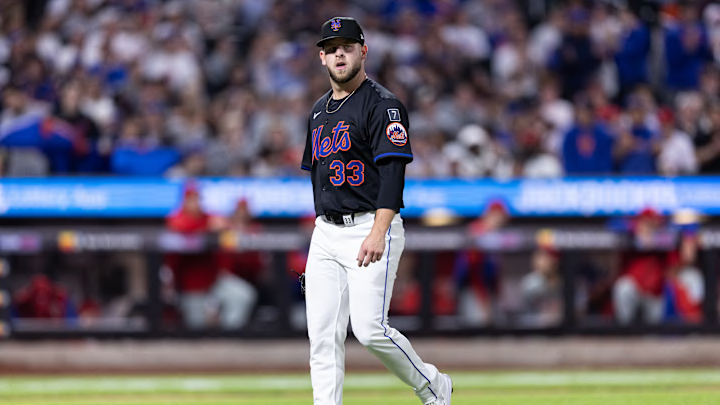The New York Mets were playing great baseball to start the season, most notably due to their pitching staff. Their starters are leading the league in ERA, and their bullpen ranks among the top five. However, a stunning turn of events unfolded today as the Mets squandered a commanding 7-1 lead in the seventh inning against the Washington Nationals, ultimately losing the game in a painful comeback for the home team. The Nationals' resurgence was fueled by a couple of uncharacteristic defensive miscues from Juan Soto and a costly error by Pete Alonso in the ninth inning.
While the defense faltered late in the game, the bullpen's inability to hold the once-comfortable advantage was glaring, especially coming just a day after A.J. Minter landed on the injured list. Jose Butto endured a rough outing, surrendering a three-run home run, and Ryne Stanek failed to secure the save for the second time in the series.
Finding high-leverage reliable arms without A.J. Minter
The Mets' collapse overshadowed a stellar performance by Tyler Megill, who pitched 6.1 strong innings, striking out nine and only being charged with two runs after Soto's fly ball in that fateful seventh inning. The usually reliable Mets' bullpen proved inconsistent and was hit hard in this contest, an anomaly for a unit that had ranked among the top 10 in fewest hard-hit balls allowed prior to Sunday's game against the Nationals.
The Mets' bullpen had been a significant strength throughout the young season. In terms of Win Probability Added, a metric that quantifies the impact of a plate appearance on the game's outcome, the team had ranked second only to the San Diego Padres' formidable relief corps. This statistic highlighted the Mets' efficiency in high-leverage situations. However, this series against the Nationals has cast a shadow of doubt on that strength.
Although Minter's injury wouldn't have directly impacted Sunday's game as he was likely unavailable even if healthy, the fact that a veteran like Stanek struggled in a closer role he has experience in leaves the Mets with limited options to shut down games. This inconsistency should serve as an early warning sign for the Mets regarding which arms they can reliably count on in similar high-pressure situations, especially considering the inevitable ebbs and flows of injuries and fluctuating relief performances throughout a long season.
This is particularly concerning given that Edwin Diaz himself has shown signs of regression this season, allowing the highest hard-hit contact rate of his career since 2019 and exhibiting his highest walk percentage as a professional. In this context, the team desperately needs reliable arms beyond Diaz and the injured Minter who can effectively navigate crucial late-inning scenarios. Pitchers such as Reed Garrett, the surprising Max Kranic, or Dedniel Nunez (currently in the minors to regain innings after a previous injury) are potential candidates to consider, especially given Stanek's recent struggles and Butto's shaky start.
The season is still in its infancy, and the Mets currently occupy a favorable position in the standings. However, they must capitalize on opportunities against teams with lower projected win probabilities, particularly in games where they establish comfortable leads that should be closed out efficiently. This recent stumble, though a small sample size, should not be dismissed lightly.
